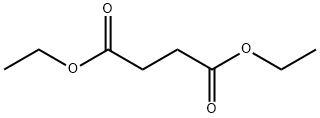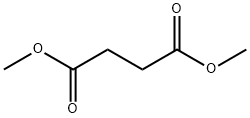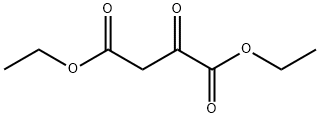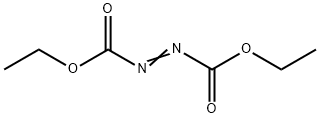A3135312
Diethyl succinate , 99% , 123-25-1
Synonym(s):
Diethyl succinate;Butanedioic acid, diethyl ester;Diethyl butanedioate;Ethyl succinate;Succinic acid diethyl ester
CAS NO.:123-25-1
Empirical Formula: C8H14O4
Molecular Weight: 174.19
MDL number: MFCD00009208
EINECS: 204-612-0
| Pack Size | Price | Stock | Quantity |
| 100ML | RMB43.20 | In Stock |
|
| 500ML | RMB141.60 | In Stock |
|
| 2.5L | RMB512.00 | In Stock |
|
| others | Enquire |
Update time: 2022-07-08
PRODUCT Properties
| Melting point: | -20 °C (lit.) |
| Boiling point: | 218 °C (lit.) |
| Density | 1.047 g/mL at 25 °C (lit.) |
| vapor density | 6 (vs air) |
| vapor pressure | 1.33 hPa (55 °C) |
| FEMA | 2377 | DIETHYL SUCCINATE |
| refractive index | n |
| Flash point: | 195 °F |
| storage temp. | Store below +30°C. |
| solubility | 2.00g/l |
| form | Liquid |
| color | Clear colorless to yellow |
| Odor | at 100.00 %. mild fruity cooked apple ylang |
| Odor Type | fruity |
| biological source | synthetic |
| Water Solubility | Slightly soluble in water. |
| Merck | 14,8869 |
| JECFA Number | 617 |
| BRN | 907645 |
| Dielectric constant | 6.6(30℃) |
| Cosmetics Ingredients Functions | FRAGRANCE SOLVENT SKIN CONDITIONING - EMOLLIENT PLASTICISER |
| Cosmetic Ingredient Review (CIR) | Diethyl succinate (123-25-1) |
| InChI | 1S/C8H14O4/c1-3-11-7(9)5-6-8(10)12-4-2/h3-6H2,1-2H3 |
| InChIKey | DKMROQRQHGEIOW-UHFFFAOYSA-N |
| SMILES | CCOC(=O)CCC(=O)OCC |
| LogP | 1.4 at 40℃ |
| CAS DataBase Reference | 123-25-1(CAS DataBase Reference) |
| NIST Chemistry Reference | Diethyl succinate(123-25-1) |
| EPA Substance Registry System | Butanedioic acid, 1,4-diethyl ester (123-25-1) |
Description and Uses
Diethyl succinate can be used as solvent; food flavoring agent; organic synthesis intermediate; gas chromatography stationary solution (maximum use temperature 60°C, solvent is ether). Alkyl succinates have been used as ashless dispersants and detergent additives for lubricating oils.
Safety
| Symbol(GHS) |  GHS07 |
| Signal word | Warning |
| Hazard statements | H227 |
| Precautionary statements | P210e-P280a-P370+P378a-P403+P235-P501a |
| Hazard Codes | Xi |
| Risk Statements | 36/37/38 |
| Safety Statements | 26-36-24/25-22-S24/25 |
| WGK Germany | 2 |
| RTECS | WM7400000 |
| TSCA | TSCA listed |
| HS Code | 29171990 |
| Storage Class | 10 - Combustible liquids |
| Toxicity | LD50 orally in Rabbit: 8530 mg/kg LD50 dermal Rat > 5000 mg/kg |





